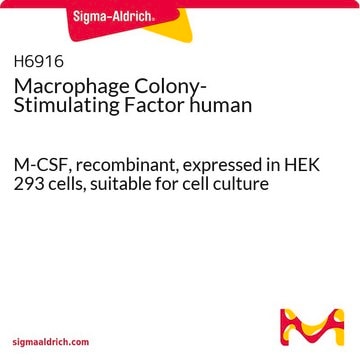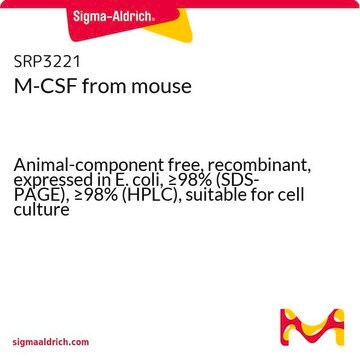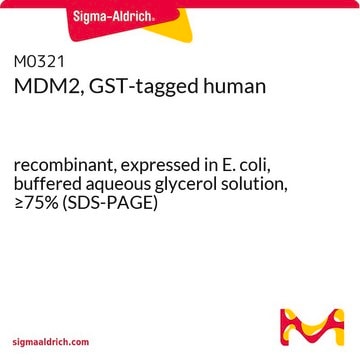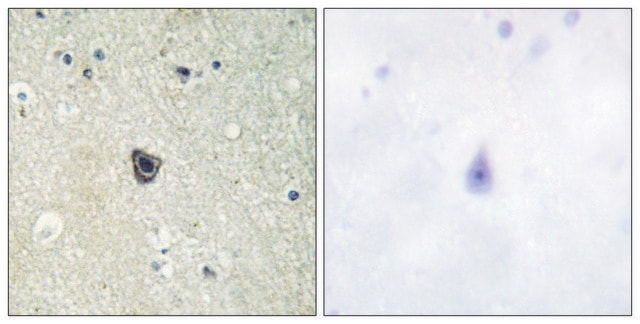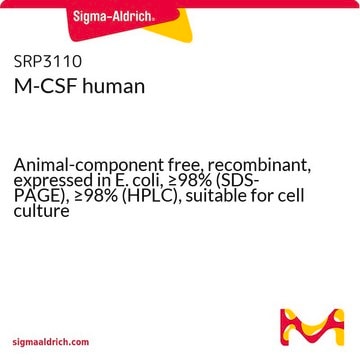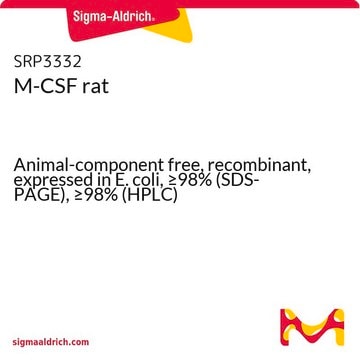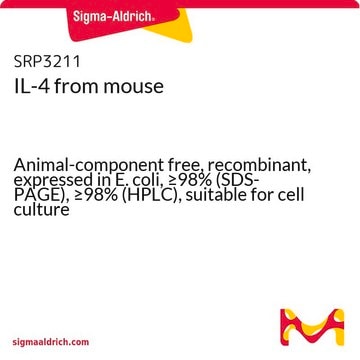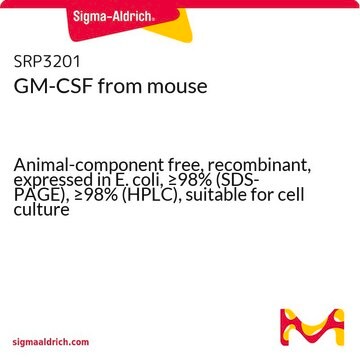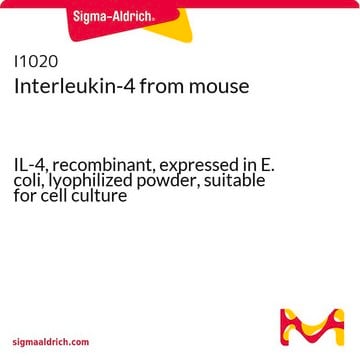M9170
Macrophage Colony-Stimulating Factor from mouse
≥98% (SDS-PAGE), recombinant, expressed in E. coli, lyophilized powder, suitable for cell culture
Szinonimák:
mCSF-1, mM-CSF, CSF-1, M-CSF
About This Item
Javasolt termékek
product name
Macrophage Colony-Stimulating Factor from mouse, M-CSF, recombinant, expressed in E. coli, lyophilized powder, suitable for cell culture
biológiai forrás
mouse
Minőségi szint
rekombináns
expressed in E. coli
Teszt
≥98% (SDS-PAGE)
form
lyophilized powder
hatékonyság
0.500-3.000 ng/mL ED50
minőség
endotoxin tested
molekulatömeg
dimer 18.2 kDa (containing 156 amino acid residues)
kiszerelés
pkg of 10 μg
technika/technikák
cell culture | mammalian: suitable
szennyeződések
≤1.000 EU/μg
szín
white
UniProt elérési szám
tárolási hőmérséklet
−20°C
Géninformáció
mouse ... Csf1(12977)
Looking for similar products? Látogasson el ide Útmutató a termékösszehasonlításhoz
Alkalmazás
- in the initiation of osteoclastogenesis in bone marrow monocyte cells
- to stimulate osteoclast differentiation in non-adherent hematopoietic cell
- for the generation of blood-derived stem cells
Biokémiai/fiziológiai hatások
Fizikai forma
Analízis megjegyzés
Figyelmeztetés
Warning
Figyelmeztető mondatok
Óvintézkedésre vonatkozó mondatok
Veszélyességi osztályok
Eye Irrit. 2 - Skin Irrit. 2 - STOT SE 3
Tárolási osztály kódja
11 - Combustible Solids
WGK
WGK 2
Lobbanási pont (F)
Not applicable
Lobbanási pont (C)
Not applicable
Egyéni védőeszköz
dust mask type N95 (US), Eyeshields, Gloves
Analitikai tanúsítványok (COA)
Analitikai tanúsítványok (COA) keresése a termék sarzs-/tételszámának megadásával. A sarzs- és tételszámok a termék címkéjén találhatók, a „Lot” vagy „Batch” szavak után.
Már rendelkezik ezzel a termékkel?
Az Ön által nemrégiben megvásárolt termékekre vonatkozó dokumentumokat a Dokumentumtárban találja.
Az ügyfelek ezeket is megtekintették
Tudóscsoportunk valamennyi kutatási területen rendelkezik tapasztalattal, beleértve az élettudományt, az anyagtudományt, a kémiai szintézist, a kromatográfiát, az analitikát és még sok más területet.
Lépjen kapcsolatba a szaktanácsadással